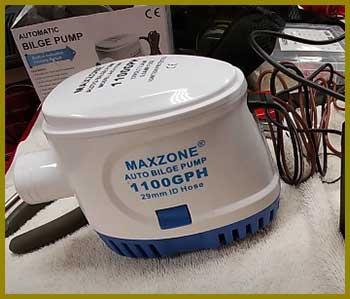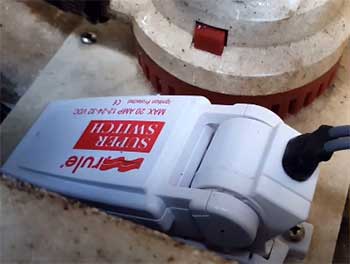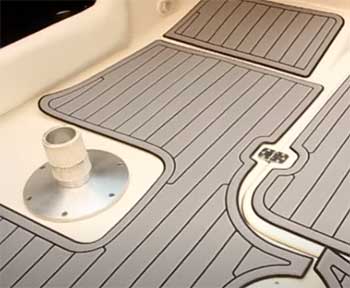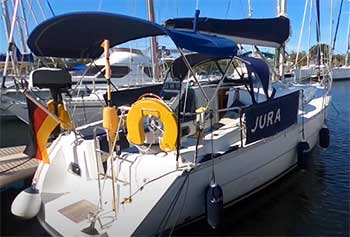Automatic Bilge Pumps and Float Switch have an excellent reputation in the bilge pump market. However, Automatic Bilge Pump and Float Switch have different operations.
Bilge pumps are essential to ensure the boat stays afloat and doesn’t sink. Bilge Pump and Float Switch will entice you if you are passionate about boating and related adventures.
Here is a quick comparison chart highlighting the key specifications of the Automatic Bilge Pump and Float Switch.
Quick Comparison Table
| Specifications | Automatic Bilge Pump | Float Switch |
| Operations | Automatic Operation | Manual Treatment |
| Maintenance | Little Maintenance | Regular Maintenance |
| Reliability | More Reliable | Less Reliable |
| Flexibility | Better Flexibility | Less Flexible Options |
| Power Consumption | More Power to Operate | Less Power to Operate |
| Cost | Expensive | Affordable |
Key Differences Between Automatic Bilge Pump And Float Switch
The above comparison chart gave you a brief idea about the specifications of the Automatic Bilge Pump and Float Switch. It’s time to identify the prime features of the two products.
- Background And Usage

An automatic bilge pump is a pump that is designed to automatically turn on and remove water from a boat’s bilge when the water level reaches a certain height.
The automatic feature of the pump is usually activated by a built-in float switch attached to the pump.
This means that the pump will start to operate without manual intervention when the water level in the bilge rises above a certain level.
A float switch, also known as a bilge pump float switch, is a device used to control the operation of a bilge pump.
It works by detecting the water level in the bilge and activating the bilge pump when the water level reaches a certain point.
Float switches are available in different designs, including traditional mechanical and more advanced electronic ones.
Mechanical float switches use a ball that floats on top of the water in the bilge. When the water level rises, the ball also rises, triggering a switch that activates the bilge pump.
On the other hand, electronic float switches use sensors to detect the water level in the bilge and activate the bilge pump accordingly.
- Operation
One of the main differences between an automatic bilge pump and a float switch is in their operation.
An automatic bilge pump is designed to operate automatically without manual intervention. It turns on when the water level in the bilge rises above a certain level and turns off when the water level drops.
On the other hand, a float switch is used to control the operation of a bilge pump. It detects the water level in the bilge and activates the bilge pump when the water level reaches a certain point.
- Reliability
Regarding reliability, automatic bilge pumps are generally more reliable than float switches.
This is because automatic bilge pumps are designed to operate automatically, so they are always ready to pump out water when needed.
Float switches, on the other hand, are prone to failure due to their mechanical nature. For example, mechanical float switches can become stuck or clogged with debris, preventing them from functioning correctly.
- Noise
Automatic bilge pumps tend to be noisier than float switches. This is because they have an electric motor that drives the pump, which can create noise when running.
On the other hand, Float switches do not have a motor, so they are quieter in operation.
- Safety
Automatic bilge pumps are generally safer than float switches.
This is because they operate automatically, meaning they can remove water from the bilge even when the boat is unattended, or the owner is sleeping.
On the other hand, float switches require manual intervention to activate the bilge pump, which can be a problem if the boat owner is not available to turn on the pump in case of an emergency.
- Maintenance
Another factor to consider when comparing automatic bilge pumps and float switches is maintenance.
Automatic bilge pumps require little maintenance as they are designed to operate automatically. However, they still need periodic checks to ensure they function correctly.
On the other hand, float switches require regular maintenance to ensure they are functioning correctly.
This is because they are prone to failure due to their mechanical nature, and any debris or build-up in the bilge can affect their operation.
- Cost

Cost is another factor to consider when comparing automatic bilge pumps and float switches.
Automatic bilge pumps are generally more expensive than float switches.
This is because they are more advanced and have more features than float switches.
Float switches are more affordable and simpler in design, making them a popular choice for boaters looking for a cost-effective solution to control their bilge pump.
- Flexibility
Automatic bilge pumps offer more flexibility than float switches. This is because they can be set to different water levels, and some models even have adjustable settings.
Float switches, on the other hand, are designed to activate the bilge pump at a fixed water level, which can limit their effectiveness in certain situations.
- Power Consumption
Another difference between automatic bilge pumps and float switches is their power consumption.
Automatic bilge pumps require more power to operate than float switches. This is because they are designed to pump out water automatically, which requires more energy.
On the other hand, float switches require less power to operate, making them a good option for boaters concerned about battery usage.
The Best Option Between The Two
Automatic Bilge pumps offer the best service and reliability than Float Switch. Automatic Bilge pump combines less power consumption, better efficiency, and adequate mobility.
Moreover, automatic bilge pumps require less maintenance compared to Float Switch. Hence, you don’t have to take any hassle cleaning the pumps.
Automatic bilge pumps are also more reliable than Float Switch. It also provides multiple operation options and flexibilities than other top brands.
Automatic bilge pumps are safer than float switches that help you to have a relaxing boat experience.
Price is the only drawback of automatic bilge pumps. However, the premium quality and flexibility justify the high price range of the product.
Therefore, if you can manage your budget, choose automatic bilge pumps for an ultimate boating experience.
Also Read: Popular NavPod Substitutes.
Frequently Asked Questions (FAQ)
The automatic feature of the pump is usually activated by a built-in float switch attached to the pump.
If you plan to go boating or have a similar experience, then you need an automatic bilge pump for a better adventure.
In case of power consumption, automatic bilge pumps drain less battery than other brands.
There are two kinds of Bilge pumps. They are Automatic and Manual bilge pumps.
An automatic bilge pump is a pump that is designed to automatically turn on and remove water from a boat’s bilge when the water level reaches a certain height.
Conclusion
Automatic Bilge Pump is the clear winner in this comparison of Automatic Bilge pump and float switch.
The combination of automatic operation, better maintenance, reliability, and less power consumption makes Automatic Bilge Pump unique.
Therefore, if you plan to go boating, select Automatic Bilge Pump for a better experience.

